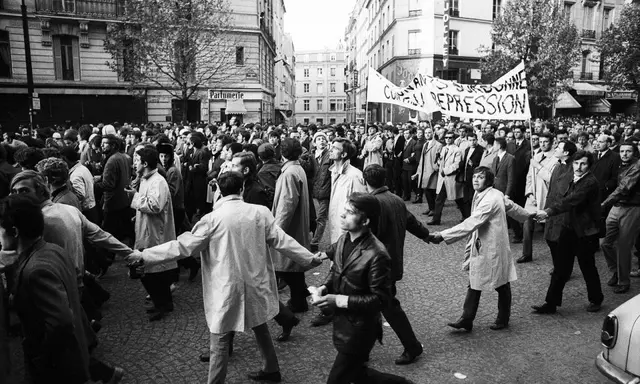Global challenges, a post-2015 development agenda and praise for a new climate deal between China and the United States were the main topics of a series of the Association of Southeast Asian Nations (ASEAN) meetings that kicked off here on Wednesday.
The importance of greater engagement with the rest of the world was emphasized by Myanmar President U Thein Sein at the opening session of the 25th ASEAN summit.
Stressing on the potential trading and investment opportunities ASEAN has with other blocs, Thein Sein called for greater engagement with the G20 and BRICS countries. The G20 summit, which gets under way right after the ASEAN meeting, in particular will gain much attention.
"We must also focus on establishing a culture of compliance to the established rules of regional architecture," he told the gathering of members as ASEAN faces the challenge of meeting their integration deadline next year.
After a plenary meeting of the 25th ASEAN summit, the ASEAN leaders adopted a declaration on the ASEAN Community's post-2015 vision, which will serve as the basis for a comprehensive roadmap for the regional bloc beyond 2015.
Myanmar is welcoming its biggest gathering of global leaders since the start of reforms which have seen the country shed its sidelined status.
Leaders attending the meetings include Indian Prime Minister Narendra Modi, U.S. President Barack Obama, Chinese Premier Li Keqiang, Australian Prime Minister Tony Abbott, and Japanese Prime Minister Shinzo Abe.
The two-day summit is the culmination of a year-long ASEAN chairmanship which has seen Myanmar seize the diplomatic limelight after having long been marginalized.
"This year is the most important turning year deciding the achievement of the ASEAN community by 2015 and Myanmar has played an important role in accelerating the implementation of the remaining action lines for the ASEAN Community building," ASEAN Secretary-General Le Luong Minh said.
At the 6th ASEAN-UN summit on Wednesday, UN Secretary General Ban Ki-moon expressed support for ASEAN members and called on them to come together to address manmade and natural disasters.
He urged the 10 ASEAN members to band together to push through a tough treaty on climate change as well as back a post-2015 development agenda to follow on work achieved by the Millennium Development Goals (MDGs) set out decades ago.
"2015 will be a crucial year for the international community to usher in a new era of sustainable development as we reach agreement on a post MDG agenda and its financing," he told the ASEAN leaders.
"We are looking for a strong agreement on climate change. A 2- degree increase in global temperature poses a significant threat to many countries including coastal towns in this region."
Taking a slightly tougher tone, Ban noted that human rights abuses and intolerance, especially discrimination of minorities and violence against women, were on the increase in the region and called on ASEAN to strengthen frameworks to deal with these challenges.
"The UN stands ready to work with ASEAN and its member states to strengthen national capacity to protect human rights, provide justice and promote accountability," he added.
The UN chief also urged ASEAN governments to empower civil society organizations and allow them to function competently to contribute to sustainable development.
Ban also praised reforms in Myanmar but warned that the presidential elections expected to be held next year would leave the country facing "critical benchmarks" on international standards of democracy.
"The government and people of Myanmar can count on the support of the United Nations as they continue the process of democratization, development and national reconciliation," he said.
At a press conference after the ASEAN-UN summit, Ban hailed ambitious pledges made by China and the United States to limit greenhouse gases and called on the rest of the world to follow suit.
He encouraged all other countries to make similar promises but noted announcements have to be released before the end of March 2015.
"The decision on their (China and the United States) position to increase their level of commitment to reducing carbon dioxide emissions is an important contribution to the new climate change agreement to be agreed to in Paris next year," Ban told reporters.
"I urge all countries, especially all major economies, to follow China and the United States and announce ambitious post 2020 targets as soon as possible but no later than the first quarter of 2015."
On Wednesday, Beijing and Washington pledged to take action to limit greenhouse gases, aiming to inject fresh momentum into the global fight against climate change ahead of the make-or-break climate talks in Paris next year.
The United States set a new target to reduce its emissions of heat-trapping gases by 26 percent to 28 percent by 2025, compared with 2005 levels. That's a sharp increase from Obama's first administration, when he pledged to cut emissions by 17 percent by 2020.
China has set a target for its emission to peak by 2030, or earlier if possible. President Xi Jinping also pledged to increase the share of non-fossil fuels energy to about 20 percent by 2030.
The arrival of top world leaders, including Chinese Premier Li, U.S. President Obama and Russian Prime Minister Dmitry Medvedev, set the stage for crucial discussions on Thursday that will end with the ASEAN chairmanship being handed over to Malaysia.
 简体中文
简体中文






